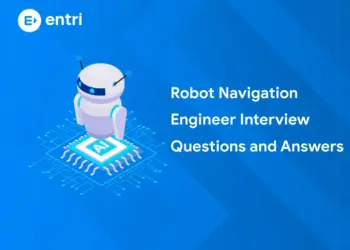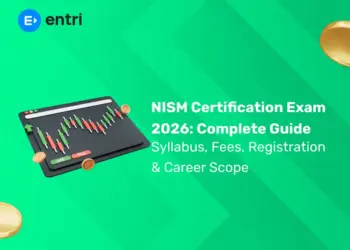Table of Contents
Kerala PSC or Kerala Public Service Commission has released the Branch Manager admit card. The exams is scheduled on 04 April 2022(Monday) from 2:30 am to 4:30 pm. In this article, we are going to give you a brief note on the exam syllabus and pattern and how to download the admission ticket for the Kerala PSC Branch Manager exam. Usually, Kerala PSC publishes the admit cards 15-20 days prior to the exam for all candidates who submitted the application for the same. Likewise, the commission has now generated the admit card for the Branch Manager examination. Read the complete article to learn all about Kerala PSC Bank Manager Admit Card 2022. Click on the link below for the Kerala PSC Bank Manager admit card out official notification.
KERALA PSC BANK MANAGER ADMIT CARD 2022 OUT: OFFICIAL NOTIFICATION
Kerala PSC Branch Manager Admit Card 2022
Kerala PSC had released notification for the post of Bank Manager the end of last year. On the 22nd of March 2022 PSC has released Admit Cards for the same post under the following categories in District Co-operative Bank.
- No. 122/2019
- No.123/2019
- No. 124/2019
- No.125/2019
- No. 127/2019
- No. 279/2021
- No.281/2021
- No. 282/2021
- No. 339/2021
- No. 340/2021
- No. 341/2021
The candidates can now download their admit cards for Kerala PSC Bank Manager exam from the official website of Kerala PSC.
Ace your Preparation for Kerala PSC Exams! Download Entri App!
Kerala PSC Branch Manager Admit Card 2022: Exam Date
1: Which Year First Assembly Election was held in Kerala?
The Kerala PSC has also revealed the exam date for the Bank Manager Exam 2022 along with the release of the admit cards. According to the notification the exam is scheduled on 04 April 2022, Monday from 2: 30 am to 4: 30 pm. All the applicants can download their admit cards and can attempt their exams on the above said date and time.
Enroll in Kerala's Top-rated Kerala PSC Coaching Program!
സർക്കാർ ജോലി എന്ന സ്വപ്നം ഇനി സ്വപ്നം മാത്രമല്ല! Join Entri's Kerala PSC Coaching Programs
Join Now!How to Download Kerala PSC Branch Manager Admit Card?
As the Kerala PSC has officially released the admit card on 22 March 2022, the aspirants who were able to submit their applications successfully can download their admit cards by logging in to their registered accounts in Kerala PSC’s official website. Have look into some simple steps you may have to follow to download the Kerala PSC Bank Manager admission tickets:
Step 1: log in to official website for downloading the admit cards which is Kerala PSC Thulasi Portal.
Step 2: log in to your personal profile by using your user ID and password which you had created during the registration process.
Step 3: From the admit card link of the Bank Manager examination, download your admit card.
Step 4: Take the printout of the Kerala PSC Bank Manager admit card and take it with you to the examination center.
Kerala PSC Branch Manager Admit Card 2022: Download Link
Click on the link below to download your Kerala PSC Bank Manager Hall Tickets 2022.
KERALA PSC BRANCH MANAGER ADMIT CARD 2022: DOWNLOAD LINK
Kerala PSC Branch Manager Admit Card 2022: Exam Pattern
It is going to be MCQ based OMR exam for a duration of 2 hours.
- It will be conducted for 100 Marks
| Sl.No | Topics | Marks |
| 1. | Theory & Principles Of Co-Operation | 10 |
| 2. | Co-Operative Legal System | 12 |
| 3. | Co-Operative Banking In India | 10 |
| 4. | Management Of Agri-Business Co-Operatives | 10 |
| 5. | Co-Operative Accounting | 10 |
| 6. | Co-Operative Audit | 12 |
| 7. | Banking Law & Practice | 12 |
| 8. | Financial Management | 8 |
| 9. | Marketing Management | 8 |
| 10. | Human Resource Management | 8 |
| Total Marks | 100 | |
Enroll in Kerala's Top-rated Kerala PSC Coaching Program!
സർക്കാർ ജോലി എന്ന സ്വപ്നം ഇനി സ്വപ്നം മാത്രമല്ല! Join Entri's Kerala PSC Coaching Programs
Join Now!Kerala PSC Branch Manager Admit Card 2022: Syllabus
The detailed syllabus for Kerala PSC Branch Manager is given below:
Theory & Principles Of Co-operation
Institutional values and Enterprise values of co-operation, Concept of Collective Action and Co-operation, Co-operatives and other forms of business, Evolution of Cooperation Ancient forms of co-operation, Innovator of cooperative movement – Raiffeisen, Schultze, Wollemburg, Robert Owen, Rochdale Pioneers and Luzzati, Evolution of principles of cooperation, Rochdale principles, ICA principles, Statement on co-operative identity: Values and principles, Definition, Voluntary and open Membership, Democratic Member Control, Member Economic Participation, Autonomy and independence, Cooperative Education, Training and Information, Co-operation among Cooperatives, Concern for Community, Cooperative movement in India – History and Development, Pre and post independence period developments, Co-operatives and Sustainable Development Goals(SDGs), ICA Blueprint for a co-operative decade, Overview of Co-operatives in Kerala.
Co-operative Legal System
History of co-operative legislations in India,ILO Resolution 193-Recommendation concerning Promotion of Cooperatives, Co-operative Credit Societies Act1904-essential features, Functional Registrars, Co-operative Societies Act 1912-essential features, Multistate Co-operative Societies Act 2002- rights and liabilities of members, objects ,need, application, registration,management, audit, inquiry and winding up, Exceptional features of Report of the Committee on Model Co-operative Societies Act 1991, History of co-operative legislations in Kerala, 97th Constitutional Amendment Act 2011- Historical Perspective, Management of societies: committee, election,general body, representative general body, supersession, Important provisions of Kerala Cooperative Societies Act and Rules 1969 : Registration, Amendment of bye-laws, amalgamation and division, Members rights and liabilities, Disposal of net profit, Investments, Audit, and inspection, Settlement of disputes, winding up and dissolution of co-operative societies,Properties and funds of cooperative societies, Inquiry, supervision, Organisational structure of Directorate of Co-operative Audit and Department of Co-operation.
Co-operative Banking In India
Organizations under short term and medium term credit structure, Co-operative banking structure in India, Primary Agricultural Credit Societies (PACS), Classification and need for agricultural credit, District Cooperative Banks (DCB), Organizations under long term credit structure – need for long term finance, need for separate agency, State Cooperative Bank (SCB) – objectives, functions, resources, lending operations, State Cooperative Agricultural and Rural Development Banks (SCARDB) – objectives, functions, resources, loan operations, Primary Co-operative Agricultural and Rural Development Banks (PCARDB), Urban Co-operative Banks in India – evolution, objectives, functions, structure, resources, loan operations, Role of national federations: National Federation of State government Cooperative Banks Limited. (NAFSCOB), National Federation of Urban Cooperative Banks and Credit Societies Ltd, Employees Credit Societies – objectives, functions, resources, loan operations, Role of NABARD in co-operative credit, (NAFCUB), National Co-operative Agricultural & Rural Development Banks Fed. Ltd. (NCARDBF).
Ace your Preparation for Kerala PSC Exams! Download Entri App!
Management Of Agri-Business Co-Operatives
Processing Co-operatives: need, objectives and functions, Co-operative Management : concept, meaning, definition, unique features, Dairy co-operatives: history, Operation Flood Programmes, National Dairy Plan, types, objectives &structure of Dairy Cooperatives, Management structure: General body- BOD- President- Secretary. Concept of agriculture-business, need, significance and types of agricultural-business co-operative, Structure and special features of other types of cooperatives : Fisheries Co-operatives, Weavers Co-operatives, Coir Cooperative, Marketing Co-operatives: importance, objectives, functions and types, Role of state federations, national federations and other promotional agencies promoting agri-business cooperatives:RUBBERMARK, KCMMF, MARKETFED, KERAFED, NAFED, NCDC, NCDFI, NDDB, IFFCO, KRIBHCO.
Co-operative Accounting
Double entry system of book keeping, Introduction concepts and conventions of accounting, Practical system of Accounting, Bank reconciliation statement. Concepts of Capital and Revenue. Preparation of trial balance and preparation of Final accounts, Meaning and Definition of Book keeping, Indian Accounting Standards, Depreciation accounting – Methods of depreciation, Books and registers maintained by co-operative societies- daybook, ledgers. R & D Statement, Final Accounts, Co-operative Accounting-meaning and scope, Salient Features, Cooperative Accounting Vs Double Entry and Single Entry System.
Co-operative Audit
Audit : Types of audit, meaning, Difference between audit and accounting, definition and objectives, Difference between co-operative audit and general audit, financial audit and administrative audit, Co-operative Audit: definition, features and objectives, Internal control, internal check and internal audit, audit memorandum, levy of audit fees, powers of co-operative auditor, procedures of audit, directorate of co-operative audit, Audit classification and Audit Certificate, Stages of audit work: audit programme, vouching, reserves and provisions, routine checking, verification and valuation of assets and liabilities, assets classification.
Banking Law & Practice
Banking Legislation in India: Banking Regulation Act, 1949- objectives, important provisions: definitions – banking, Banking Companies Act, 1949 -, banking company, approved securities, Demand and Time Liabilities; permitted and prohibited business of a banking company; capital requirements; maintenance of liquid assets; powers of the RBI – cash reserve, licensing of banking companies, Branch Authorisation Policy for Commercial Banks,Branch Licensing, Setting Up of a New Bank, New Bank Licensing Policy, 2013, Banker and Customer:obligations of banker, general and special relationship between a banker and customer, Banking Ombudsman, Types of customers. operation and closing of different types of bank accounts, New types of accounts – tailor made schemes, flexi deposits, special types of bank customers, Accounts of Non Resident Indians. Regulations regarding KYC/AML, Lien, pledge, mortgages, hypothecation, negotiation and assignment , guarantee and indemnity, co-obligant, Law relating to Negotiable Instruments: characteristics of negotiability, types,endorsement; crossing of cheques; collecting banker – legal status – statutory protection– duties; paying banker –dishonor of cheques, statutory protection, payment in due course, holder and holder in due course, Digital Banking- ATM card, Debit card, credit card, mobile banking, internet banking.
Financial Management
Introduction to financial management. Functions of a finance manager, Capital budgeting decisions and techniques, Time value of money, Leverage: leverage in financial context, measures of leverage, Financial forecasting, Sources of Long Term finance, Capital structure: importance, factors influencing, features of an optimal capital structure, theories of capital structure – Net Income Approach, Net Operating Income Approach, Miller and Modigliani Approach, Cost of Capital, Dividend policy: Dividend decision, theories of dividend policy – Traditional Approach, Walter Model, Gordon’s Dividend Capitalisation Model, Miller Modigliani Model, Rational Expectation Model, Inventory Management: nature, role, purpose, types, costs, inventory management techniques, Estimation of Working Capital Requirements: Concept, factors affecting the working capital, operating cycle approach, criteria for evaluation of working capital management, Cash management: liquidity – profitability trade off, need and objectives, cash budget, factors for efficient cash management, Receivables Management: purpose and cost of maintaining receivables, credit policy, credit granting decisions, monitoring receivables.
Marketing Management
Elements of Marketing Management process, Marketing environment marketing management policy and planning. 4 P’s of marketing mix, Product, Price, Promotion and Physical distribution, Marketing – Definitions and Concepts. Roles of Marketing managers, Market segmentation, Targeting and Positioning, Types of Marketing Marketing Management- Meaning and Importance of Marketing Management, Market structure, Conduct and Performance, Social, Ethical and Ecological issues in Marketing, Developing marketing strategies –Product strategies Pricing strategies Marketing communication strategies and Channel management strategies.
Human Resource Management
Development of human resources – training need assessment, employee training and management development, career planning and development, Human Resource Management – meaning ,definition and importance, Motivation of human resources – concept, meaning, motivational theories, Acquisition of human resource – human resource planning, job analysis, recruitment, selection process and devices, Maintenance of human resources – compensation administration, benefits and services, disciplining employees, safety and health, Performance appraisal methods and techniques. Rewards – types and criteria, Co-operative education, training and information-identification of education, training and information needs in cooperatives, Recruitment of human resources for co-operative sector in Kerala,Institutional arrangement for co-operative training and development – NCCE, NCDC, NIRB, NCUI, NCCT, BIRD.
Entri App provides you with best practice questions for the complete preparation of various Kerala PSC exams. For the complete preparation, download the Entri App and start preparing.
Our R&D team provides the best material and books for the complete preparation of Kerala PSC and other government exams. We provide PDFs of the previous year’s question papers with solutions and detailed analysis. All you need to do is download the Entri app and start practicing.
Ace your Preparation for Kerala PSC Exams! Download Entri App!











